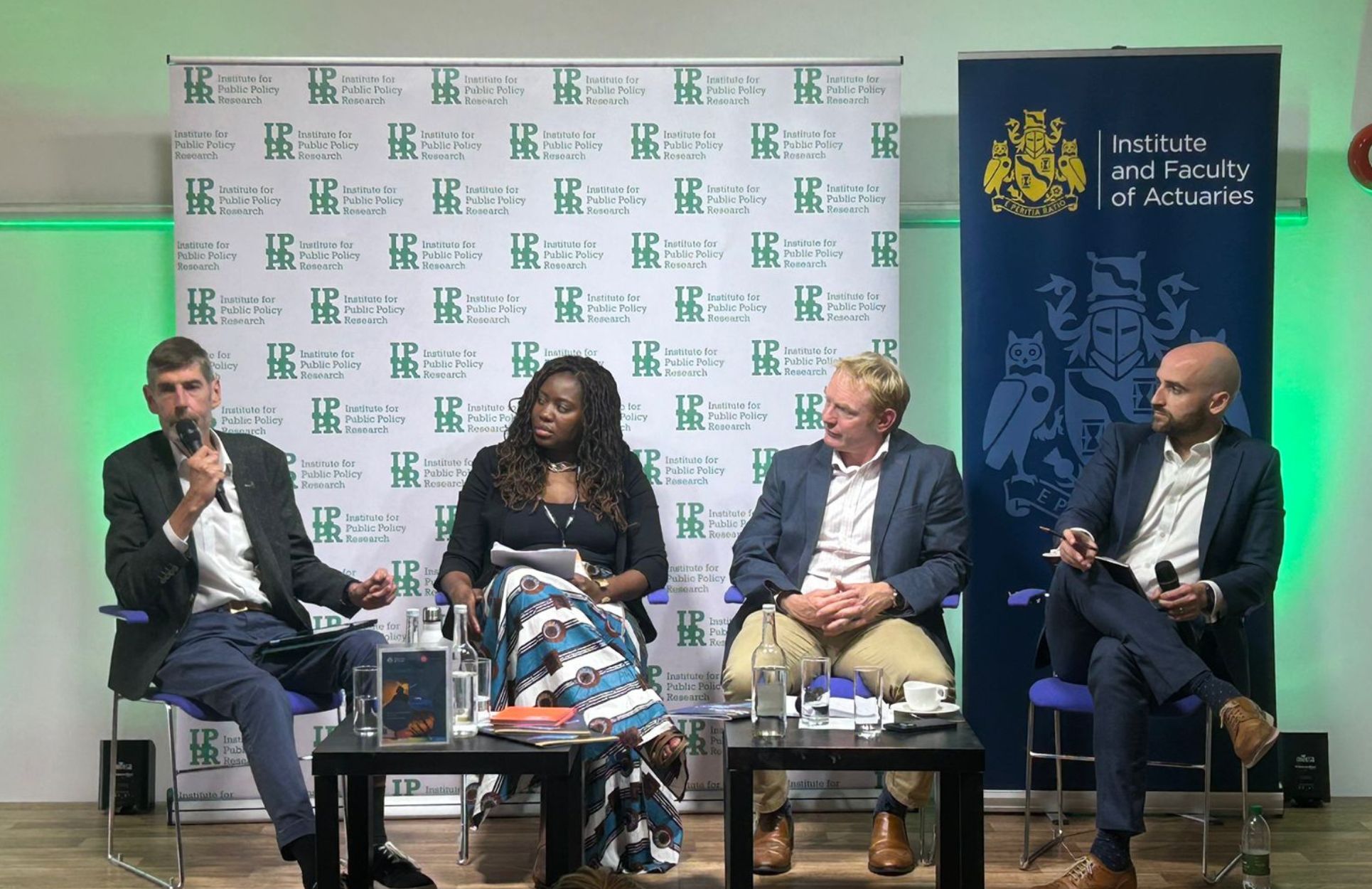 Our Policy and Public Affairs Team reports back from the 2023 party conferences, an opportunity to bring the actuarial profession ‘to life’ to political stakeholders.
Our Policy and Public Affairs Team reports back from the 2023 party conferences, an opportunity to bring the actuarial profession ‘to life’ to political stakeholders.
Every year the UK’s major political parties hold conferences for their party members and other delegates from all parts of the UK economy and society. The conferences facilitate a wide and varied range of events including fringe meetings, roundtables, and policy discussions. There are also keynote speeches from leading party figures which often contain major policy announcements.
Since 2018, the IFoA has held a strong presence at both the Labour and Conservative party conferences. This provides us with invaluable opportunities to bring the actuarial profession ‘to life’ to political stakeholders and share our priorities on key areas of policy and legislation.
“Our brilliant actuarial profession – we need 100,000 more actuaries!”
– Andrew Griffith MP, Economic Secretary to the Treasury and City Minister speaking at the Conservative Party Conference 2023
First up was the Conservative Party Conference in Manchester. The gathering of the government, all in one place in Manchester, presented a rare opportunity to engage with ministers and MPs on some of the IFoA’s most pressing legislative and political priorities. These include the proposed draft Audit Reform Bill and setting out the important role of actuaries in supporting the government’s growth ambitions through financial services and regulatory reform.
The IFoA partnered for the first time with the Policy Exchange, one of the UK’s leading think tanks. Together we delivered a fringe event evaluating the reform in financial services initiated by the UK government over the past year.
At what was a very well-attended event, the panel comprised the:

In his opening remarks and speaking for the actuarial profession, Matt Saker expressed his delight at the commitment to a long-term approach from the government on the key challenges of our times. This stance echoes the IFoA’s recent emphasis on the importance of long termism in policy making, as demonstrated in our recently published policy prospectus. See: Beyond the next Parliament: The case for long-term policymaking
Saker also brought to the fore Solvency II. He emphasised to the ear of the minister that its reform is a “once-in-a-generation” opportunity that can unleash the capital required for the large infrastructure projects that the government wishes to undertake. That’s because insurance and pension firms are “the natural” financing enablers to this, Saker said.
Saker also welcomed the Chancellor’s recent Mansion House Compact, announced in July, which aims to increase greater pension fund investment into the economy. But he cautioned the room that the new proposals should be calibrated accordingly to match the appropriate growth requirements.
“They [the IFoA] are brilliant thought leaders”
– Laurie Laybourne, Associate Fellow at the Institute for Public Policy Research, speaking at the Labour Party Conference 2023
After a short respite, we headed to Liverpool for the Labour Party Conference. With consistent double-digit polling leads for the Labour, this year’s gathering seemed all the more important, with political pundits characterising the party as a ‘government-in-waiting’. We took the opportunity to engage as extensively as possible with MPs and other Labour stakeholders on core IFoA priorities from social care to climate action.
As with the Conservative Party Conference the IFoA held a major fringe event, this time on how tackling climate change can fuel economic prosperity. Here we partnered with the Institute for Public Policy Research (IPPR), a well-established and progressive think tank.
Chaired by Laurie Laybourn, a visiting fellow at the IPPR, the panel included:

Flying the actuarial flag, Sandy Trust shared detailed insights from his latest report The Emperor’s New Climate Scenarios. Trust said “realistic risk assessment” from the financial services sector is essential for its role in tackling the climate emergency. That is coupled with the idea of applying the concept of reverse stress testing to mitigate the most extreme climate circumstances an integral element of this.
Speaking about economic prosperity in the green transition, Trust stated it would be “much cheaper” – £12 trillion cheaper with 30 million new jobs created to 13 million lost in fossil fuel industries – to run a renewable economy with wind and sunlight cost-free. The only caveat, he said, is the need to build the infrastructure to support this new economy.
He also verified comments by Laybourn, who referenced his new report, when stating that organisations such as pension funds were wrongly making risk assessments without considering environmental factors like extreme weather and knock-on effects such a forced migration.